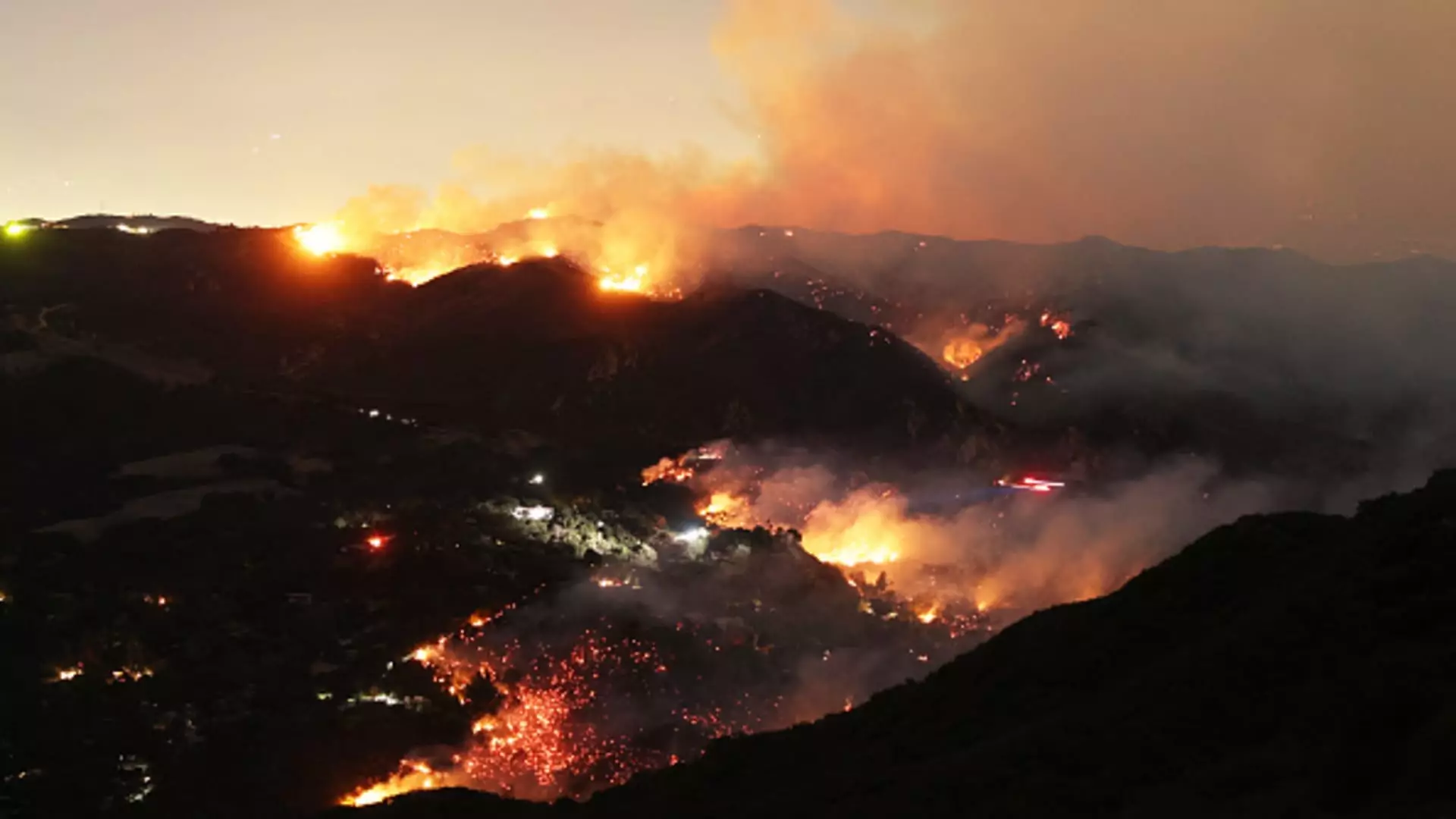In recent weeks, Southern California has been engulfed in devastating wildfires, marking one of the most destructive fire seasons on record. The Greater Los Angeles area has seen approximately 40,000 acres scorched and over 12,300 structures turned to ash. This scenario has forced around 88,000 residents to evacuate and left an additional 89,000 under evacuation alerts, highlighting the sheer magnitude of the disaster. The aftermath projected by financial institutions suggests that insured losses could exceed $20 billion. As these figures emerge, experts are turning their attention to helping affected individuals navigate the tumultuous landscape of insurance claims and recovery processes.
The Urgency of Filing Claims
For those impacted by the wildfires, swift action is crucial. Karl Susman, a seasoned insurance broker in Los Angeles, emphasizes the importance of initiating the insurance claims process as soon as possible. He suggests that residents should not wait for the fires to be entirely extinguished to start filing their claims. “You don’t have to have all of the information on hand,” Susman states, advising that even without full awareness of their property’s status, individuals can begin documenting their losses.
Due to the high volume of claims being filed, there’s a possibility that insurance processing times may be prolonged. Therefore, getting ahead of the curve is essential. Homeowners and renters, alike, should align themselves with the claims process early to ensure they secure their owed compensations in a timely manner.
In the wake of a fire, both homeowners and renters have equal opportunities to reclaim losses through their insurance. According to Shannon Martin, a licensed insurance agent, renters are often not aware that they can access nearly all of the same resources available to homeowners. The key step for renters is to gather the necessary documentation and claim any additional living expenses they may incur as a result of being displaced.
Additionally, it is vital to look into specific coverages such as “loss of use,” which can provide individuals and families with short-term housing options while they rebuild or await repairs. Jeremy Porter of the First Street Foundation highlights how this coverage acts as a lifeline, specifically for those unable to return to their homes.
Keeping meticulous records is indispensable in the claims process. Experts recommend maintaining detailed notes of every action taken, communication exchanged, and expense incurred during this harrowing period. Douglas Heller from the Consumer Federation of America reinforces this necessity, claiming that thorough documentation can mitigate complications when proving a claim for reimbursement.
Moreover, residents whose homes suffered extensive damage should not overlook contacting utility companies to halt services temporarily. Susman mentions that many affected individuals may find that they are not responsible for service fees during their time of displacement.
Understanding Coverage Options
The intricacies of insurance policies can often leave individuals flustered. Those who lost vehicles in the wildfires should be aware that their auto insurance will likely cover wildfire-related damages if they possess comprehensive coverage. In particular, they should review their policy to confirm they are protected.
For homeowners incurring significant damage, a valuable resource is the county assessor’s website, where they can file for property tax reductions if losses exceed $10,000. Susman highlights the surprisingly common oversight among homeowners in not taking immediate action on this front.
For residents without insurance, options remain available. President Biden announced federal assistance specifically targeting wildfire victims, offering a one-time payment from FEMA. As relief funds continue to roll out, affected residents are encouraged to apply for aid via DisasterAssistance.gov.
Local organizations are stepping up, offering support groups and workshops to aid recovery efforts. The California Insurance Commission is proactively hosting workshops to guide residents as they navigate the rebuilding process and insurance claim intricacies.
The wildfires in Southern California have left devastating impacts on countless individuals and communities. While the road to recovery may be long and complex, understanding the importance of insurance claims, keeping detailed records, and accessing available resources is vital. As residents emerge from the ashes of despair, communal support alongside government assistance will play a pivotal role in reconstructing lives and restoring hope in the areas hardest hit. By collaborating, sharing insights, and remaining proactive, those affected can work towards rebuilding not just their homes, but their lives as well.

